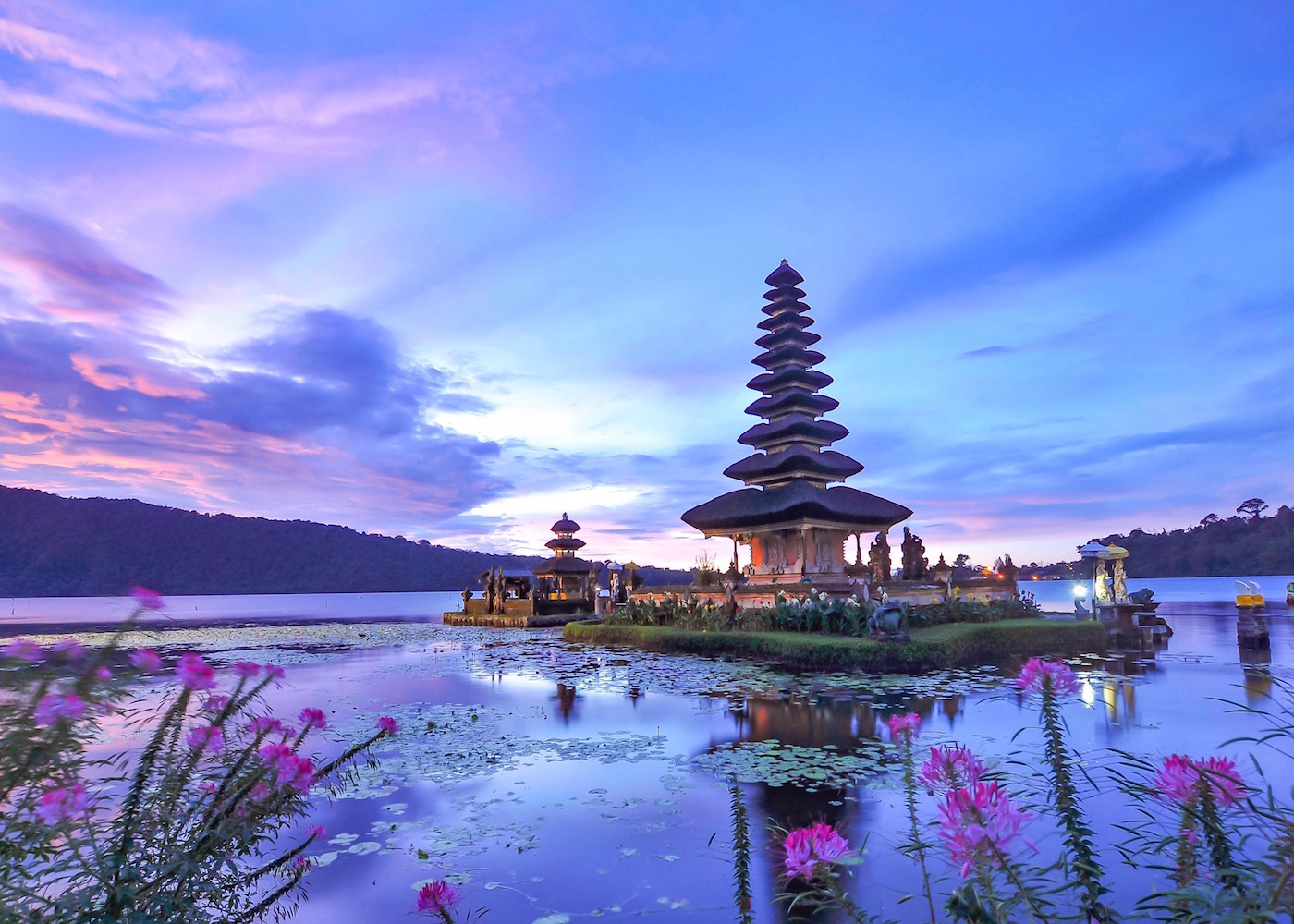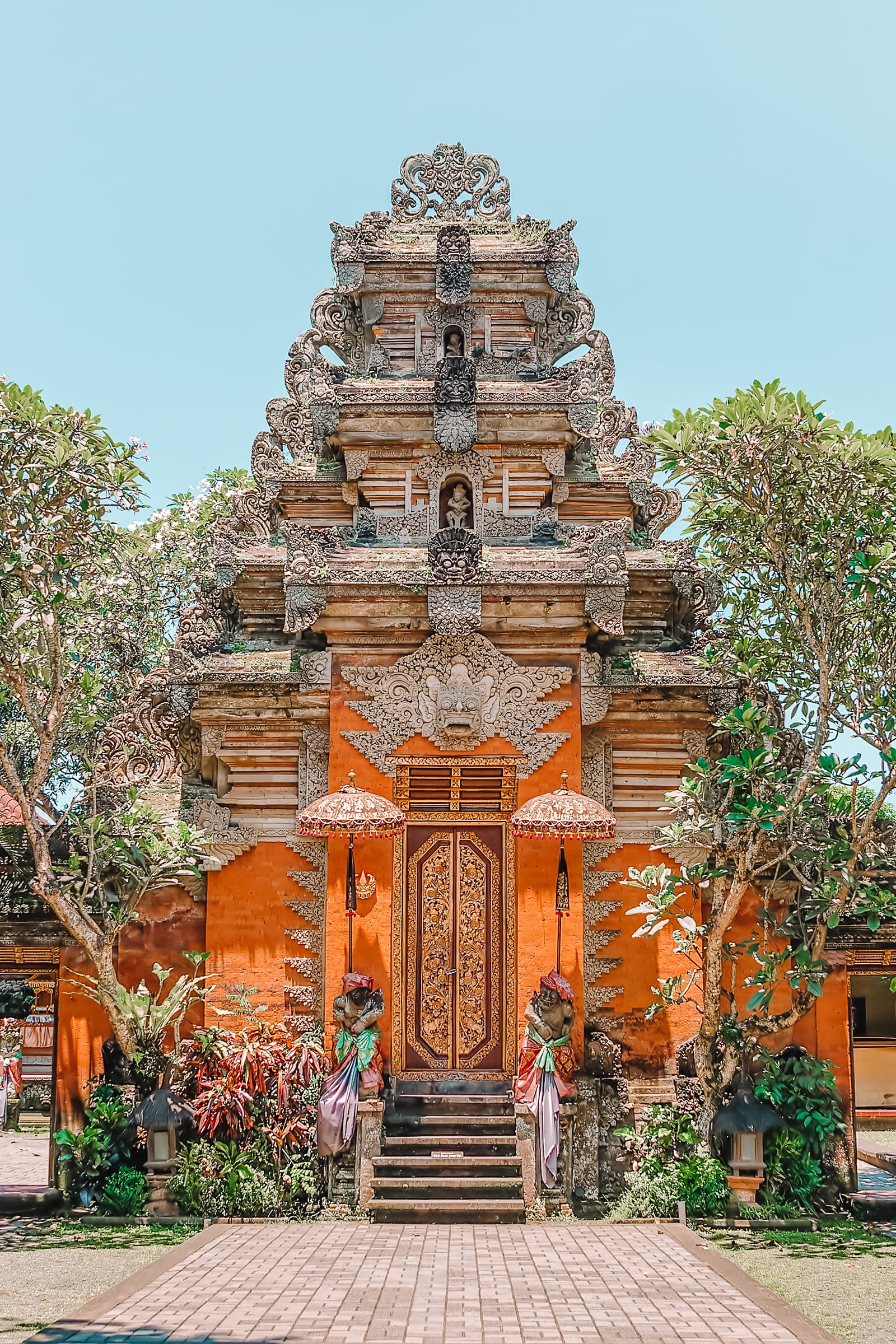
Bali, the "Island of the Gods," is more than just a tropical paradise; it’s a vibrant tapestry woven with ancient traditions, breathtaking landscapes, and a spirit of profound spirituality. From its emerald rice terraces to its volcanic peaks, its golden beaches to its intricate temples, Bali beckons travelers with a promise of rejuvenation, adventure, and a deep connection to a culture that has captivated the world for centuries. This comprehensive guide will delve into the heart of Bali, exploring its top attractions, rich history, practical travel tips, diverse accommodation options, efficient transportation, and the optimal times to experience its magic.
A Glimpse into Bali’s Storied Past: The Island’s Enduring Soul
Bali’s history is as layered and complex as its volcanic soil. Its origins are shrouded in myth, but archaeological evidence points to human settlement as early as 2000 BC. The island’s strategic location along ancient trade routes brought influences from India, China, and the Middle East, shaping its unique Hindu-Buddhist culture.

Related Articles about Bali: Island of the Gods, A Symphony of Serenity and Adventure:
- Unveiling the Rainbow Nation: A Comprehensive Guide to South Africa
- La Dolce Vita Awaits: Your Ultimate Travel Guide to Italy
- Abu Dhabi: A Glimpse into Timeless Grandeur and Modern Marvels
- Switzerland: A Symphony of Peaks, Lakes, and Timeless Charm
- The Grand American Adventure: Unlocking the Wonders of the United States
The 8th century saw the arrival of the sage Mpu Kuturan, who is credited with establishing the foundations of Balinese Hinduism, a syncretic faith that blends indigenous animistic beliefs with Hindu and Buddhist philosophies. The Majapahit Empire, originating from Java, exerted significant influence over Bali in the 14th and 15th centuries, leaving behind a legacy of art, architecture, and governance.
The arrival of European traders in the 16th century marked a new era. The Dutch colonial power eventually established control over the island in the early 20th century, a period that saw both exploitation and the preservation of Balinese culture under colonial administration. Following Indonesia’s independence in 1945, Bali became an integral part of the new nation, while fiercely safeguarding its distinct cultural identity. This rich history is palpable in the island’s temples, ceremonies, and the everyday lives of its people, contributing to Bali’s enduring charm.
Unveiling Bali’s Treasures: Top Attractions That Will Enchant You
Bali offers an astonishing array of experiences, catering to every type of traveler. Here are some of its most iconic and beloved attractions:
1. Temples of Sacred Significance:
- Tanah Lot Temple: Perched precariously on a rocky outcrop overlooking the crashing waves of the Indian Ocean, Tanah Lot is perhaps Bali’s most photographed temple. Its dramatic setting, especially at sunset, is truly mesmerizing. Legend has it that the temple was built by a wandering Javanese priest to ward off evil spirits.
- Uluwatu Temple: Dramatically situated on a cliff edge 70 meters above the sea, Uluwatu offers breathtaking panoramic views. This ancient sea temple is also home to a troop of mischievous monkeys, so be mindful of your belongings. The Kecak dance performance at sunset here is an unforgettable cultural spectacle.
- Besakih Temple (Mother Temple of Bali): The largest and holiest temple complex in Bali, Besakih is nestled on the slopes of Mount Agung, the island’s highest volcano. It’s a sprawling complex of over 80 temples, each dedicated to different deities and ancestors. Visiting Besakih offers a profound insight into Balinese spiritual life and architecture.
- Tirta Empul Temple: Known for its holy spring water, Tirta Empul is a place of purification and spiritual cleansing. Locals and tourists alike come here to bathe in the sacred pools, believed to have healing properties. The intricate stone carvings and serene atmosphere make it a truly tranquil experience.
- Ulun Danu Beratan Temple: Situated on the shores of Lake Beratan, this picturesque temple appears to float on the water, especially during high tide. It’s dedicated to the water goddess Dewi Danu and is an iconic symbol of Bali’s tranquil beauty.

2. Natural Wonders That Inspire Awe:
- Tegalalang Rice Terraces: These iconic emerald-green terraces, sculpted by local farmers for centuries, are a UNESCO World Heritage site. The cascading landscape, dotted with palm trees and traditional irrigation systems (subak), offers stunning photo opportunities and a glimpse into traditional Balinese agriculture.
- Mount Batur: For the adventurous, an early morning trek up Mount Batur to witness the sunrise is an unforgettable experience. This active volcano offers panoramic views of the surrounding landscape, including Lake Batur. The hike is moderately challenging but incredibly rewarding.
- Waterfalls: Bali is blessed with numerous magnificent waterfalls. Tegenungan Waterfall is popular and easily accessible, while Gitgit Waterfall offers a more secluded and powerful cascade. Sekumpul Waterfall, with its multiple tiers and lush surroundings, is often considered the most beautiful.
- Beaches: Bali boasts a diverse range of beaches, from the lively shores of Kuta and Seminyak, perfect for surfing and nightlife, to the tranquil sands of Nusa Dua and Jimbaran, ideal for relaxation and seafood dinners. For a more laid-back vibe, head to Bingin or Padang Padang, famous for their surf breaks and bohemian charm.
3. Cultural Immersion and Artistic Delights:
- Ubud: The cultural heart of Bali, Ubud is a haven for artists, yogis, and spiritual seekers. Explore its vibrant art galleries, attend a traditional Balinese dance performance, visit the Sacred Monkey Forest Sanctuary, and immerse yourself in the serene atmosphere of its yoga studios and wellness centers.
- Traditional Balinese Dance Performances: Witnessing a Legong or Kecak dance is a must-do. These captivating performances, often accompanied by mesmerizing gamelan music, tell stories of ancient epics and folklore, showcasing the island’s rich artistic heritage.
- Art Markets: Explore the bustling art markets in Ubud or Sukawati to find exquisite handcrafted souvenirs, from intricate wood carvings and paintings to silver jewelry and batik fabrics. Haggling is part of the experience, so be prepared to negotiate respectfully.
- Cooking Classes: Learn to prepare authentic Balinese dishes by taking a cooking class. You’ll discover the secrets of Balinese spices and ingredients, and enjoy a delicious feast you helped create.
Navigating the Island: Essential Bali Travel Tips
To ensure a smooth and enjoyable trip to Bali, keep these practical tips in mind:
- Visa Requirements: Check the visa requirements for your nationality well in advance. Many nationalities can obtain a visa on arrival or are eligible for visa-free entry for short stays.
- Currency: The local currency is the Indonesian Rupiah (IDR). ATMs are widely available, and credit cards are accepted in most hotels, restaurants, and larger shops. It’s advisable to carry some cash for smaller purchases and local markets.
- Language: The official language is Indonesian, but Balinese is widely spoken. English is commonly understood in tourist areas. Learning a few basic Indonesian phrases like "Terima kasih" (thank you) and "Sama-sama" (you’re welcome) will be greatly appreciated.
- Respect Local Customs: Bali is a predominantly Hindu island, and respecting local customs is paramount. Dress modestly when visiting temples, covering your shoulders and knees. Be mindful of your behavior, especially during religious ceremonies.
- Health and Safety: Drink bottled water only. Be cautious of street food and ensure it’s cooked fresh. Consult your doctor about necessary vaccinations before your trip. The sun can be intense, so wear sunscreen, a hat, and stay hydrated.
- Bargaining: Bargaining is common in local markets and with street vendors. Approach it with a friendly smile and a sense of humor. Start with a reasonable offer and be prepared to walk away if the price isn’t right.
- Tipping: Tipping is not mandatory but is appreciated for good service. A small tip of 5-10% for restaurant staff or taxi drivers is customary.
Where to Rest Your Head: Bali’s Diverse Accommodation Options
Bali offers a vast spectrum of accommodation to suit every budget and preference, from luxurious resorts to charming guesthouses:
- Luxury Resorts & Villas: For an indulgent experience, Bali boasts world-class resorts and private villas, particularly in areas like Seminyak, Nusa Dua, and Uluwatu. Expect infinity pools, private butlers, spa treatments, and breathtaking ocean views.
- Boutique Hotels: These offer a more intimate and personalized experience, often with unique design elements and a focus on local culture. Ubud is particularly renowned for its charming boutique hotels.
- Mid-Range Hotels: Bali has a plethora of comfortable and well-equipped mid-range hotels, offering good value for money. These are widely available across the island.
- Guesthouses (Losmen) & Homestays: For budget travelers and those seeking an authentic local experience, guesthouses and homestays are an excellent choice. You’ll often find yourself welcomed into local families’ homes, offering a glimpse into everyday Balinese life.
- Hostels: Popular in surf towns and backpacker hubs like Kuta and Canggu, hostels offer affordable dorm beds and private rooms, with a great social atmosphere.
Getting Around the Island: Bali’s Transportation Network
Navigating Bali is an adventure in itself, with several options available:
- Scooter/Motorbike Rental: This is the most popular and flexible way to explore Bali, especially for independent travelers. Scooters are affordable to rent, and it allows you to reach remote areas and discover hidden gems. However, it’s crucial to have an international driving permit, wear a helmet, and be an experienced rider as traffic can be chaotic.
- Taxis: Metered taxis are readily available in tourist areas. Blue Bird taxis are generally considered reliable. For longer journeys, agree on a price beforehand.
- Ride-Sharing Apps: Apps like Grab are widely used and offer a convenient and often more affordable alternative to traditional taxis.
- Private Drivers: Hiring a private driver for a day is an excellent option for exploring multiple attractions or for longer day trips. This offers comfort, flexibility, and local insights. Negotiate the price per day or per trip beforehand.
- Shuttles & Tour Buses: Many hotels and tour operators offer shuttle services and organized tours, which can be convenient for specific routes or sightseeing.
- Public Transportation: While rudimentary, public buses (Perama Tour) do exist and connect major towns, but they are often slow and infrequent.
The Golden Window: Best Time to Visit Bali
Bali enjoys a tropical climate with two main seasons:
- Dry Season (April to September): This is generally considered the best time to visit Bali. The weather is sunny, with low humidity and minimal rainfall. The seas are calmer, making it ideal for water activities. This is also the peak tourist season, so expect larger crowds and higher prices.
- Wet Season (October to March): The wet season brings higher humidity and frequent, often heavy, rain showers. However, the rain usually comes in short bursts, often in the afternoon, leaving plenty of sunshine. The landscapes are lush and vibrant, and prices are generally lower. This can be a good time for surfers looking for big waves.
Shoulder Seasons (April-May and September-October): These periods offer a good balance, with pleasant weather and fewer crowds than the peak season.
Conclusion: An Island That Captivates the Soul
Bali is an island that truly has it all – a rich cultural heritage, breathtaking natural beauty, vibrant spiritual life, and a warm, welcoming spirit. Whether you seek adventure on its surf-laden coasts, tranquility in its verdant rice paddies, or enlightenment in its ancient temples, Bali promises an experience that will linger in your heart long after you depart. By understanding its history, planning your itinerary, and embracing its unique charm, you’ll unlock the magic of the Island of the Gods and create memories that will last a lifetime.





